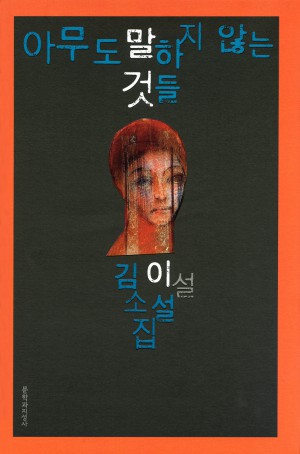A review of Thirteen by Kim Yi-seol
As a Korean literature student, Thirteen by Kim Yi-seol left a strong impression on me with its honest portrayal of the struggles of poverty, survival, and emotional hardship. The story follows a young girl and her mother who live in a train station, facing constant challenges. What stands out to me is how Yi-seol shows not only their lack of material things—like food, clothing, and even basic comforts—but also their emotional poverty. The protagonist feels abandoned and alone, with no one to guide her through the difficulties of life. This emotional emptiness is just as powerful, if not more so, than their financial struggles. The girl’s deep loneliness, her broken relationship with her mother, and her longing for her father create a sense of abandonment that weighs heavily on her.
“I lay quietly and stretched my legs. My toes touched the wall. There are things in the world that you naturally come to know without anyone telling you.”
— from “Thirteen” (p. 16)
What struck me most about the girl’s character is her desire for things like “stockings and skirts.” These simple items represent her longing for normalcy, for a life she imagines would be better—one that isn’t defined by hardship and survival. She dreams of a life free from the burdens she carries, yet she can never fully escape the reality of poverty that keeps her from what she wants. This desire for normal things highlights how her childhood has been stolen by the harshness of her environment, and it made me think about how poverty affects not just people’s material needs but also their emotional lives.

The introduction of the character “the white face” offers a moment of hope in the story. In a world where people often ignore or avoid the girl, the white face shows her kindness and compassion. To me, this figure symbolizes the rare moments of goodness that can appear even in the darkest times, reminding me that kindness can come from unexpected places. The white face becomes an important source of comfort for the girl, offering her some emotional relief in a world that feels cold and indifferent.
The clock tower in the story is another important symbol. It represents time, something constant that contrasts with the instability the girl faces. While her life is full of uncertainty and change, the clock keeps ticking, marking the passage of time that she cannot control. I found this a sad reflection of how the girl is trapped in her situation, unable to escape the cycle of hardship that defines her life. At the same time, the clock tower is a reminder that the world continues outside her small world, a world she can’t reach, even though she longs to.
The basket that the girl’s mother uses to collect money from passersby also stood out to me. It symbolizes their dependence on others for survival. The mother and daughter have little control over their own fate, relying on the charity of strangers to get by. This image made me think about how poverty forces people into vulnerable positions, where they must rely on the kindness of others to meet their basic needs.
The ending of the story, where the girl is abandoned once again, mirrors the silence of her mother. After all the struggles she faces, and after moments of kindness from the white face, she is left alone once more. This return to abandonment felt like a harsh reminder of the unending nature of her struggle. It’s as though the story is saying that, even with moments of hope, poverty and isolation can feel endless.
In Thirteen, Kim Yi-seol paints a vivid picture of how poverty shapes not just a person’s material life, but also their emotional world. The protagonist’s struggles with loneliness, poverty, and abandonment are not just physical, but deeply emotional. This story has stayed with me because it shows how difficult life can be for those who don’t have the resources or support to escape their circumstances. It made me think about how people in poverty are often overlooked, and how their emotional needs are just as important as their material needs. Yi-seol’s story, though heartbreaking, also reminds me of the strength and resilience of the human spirit, even in the face of overwhelming difficulty.
How about this article?
- Like1
- Support1
- Amazing1
- Sad0
- Curious0
- Insightful0


